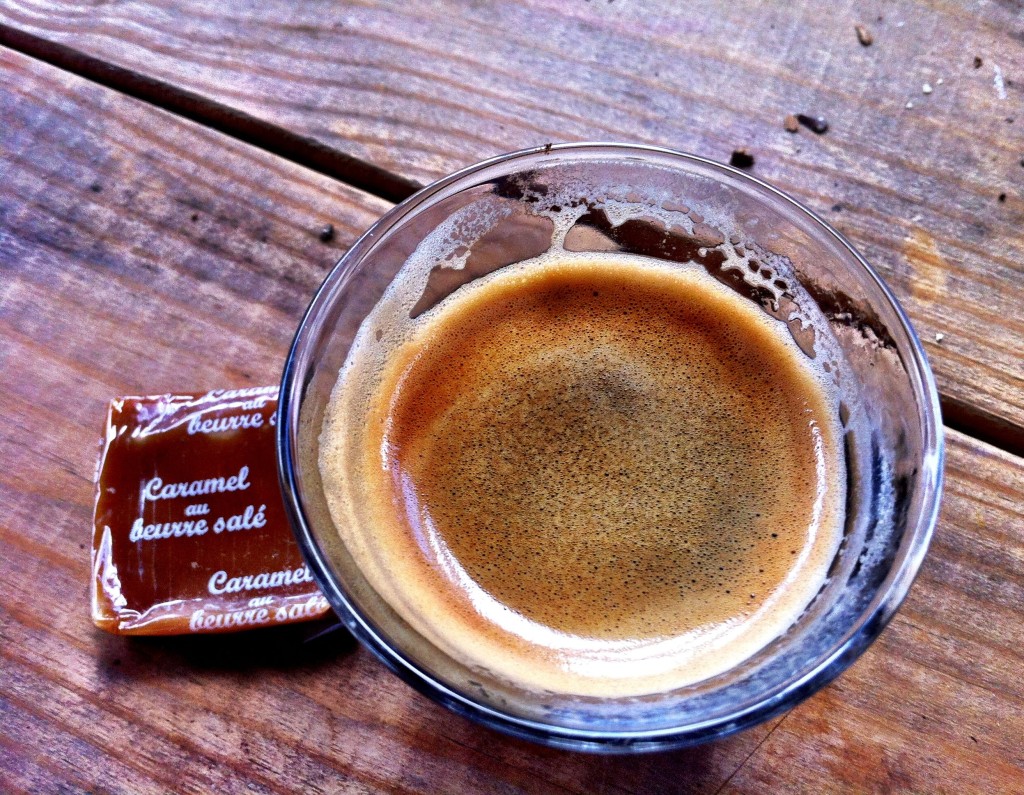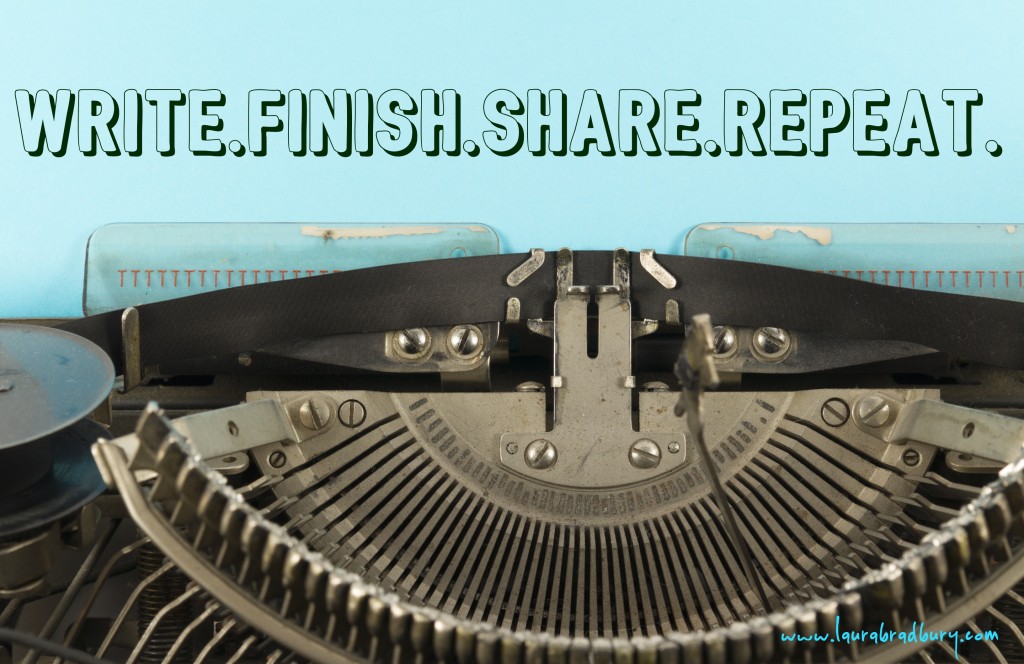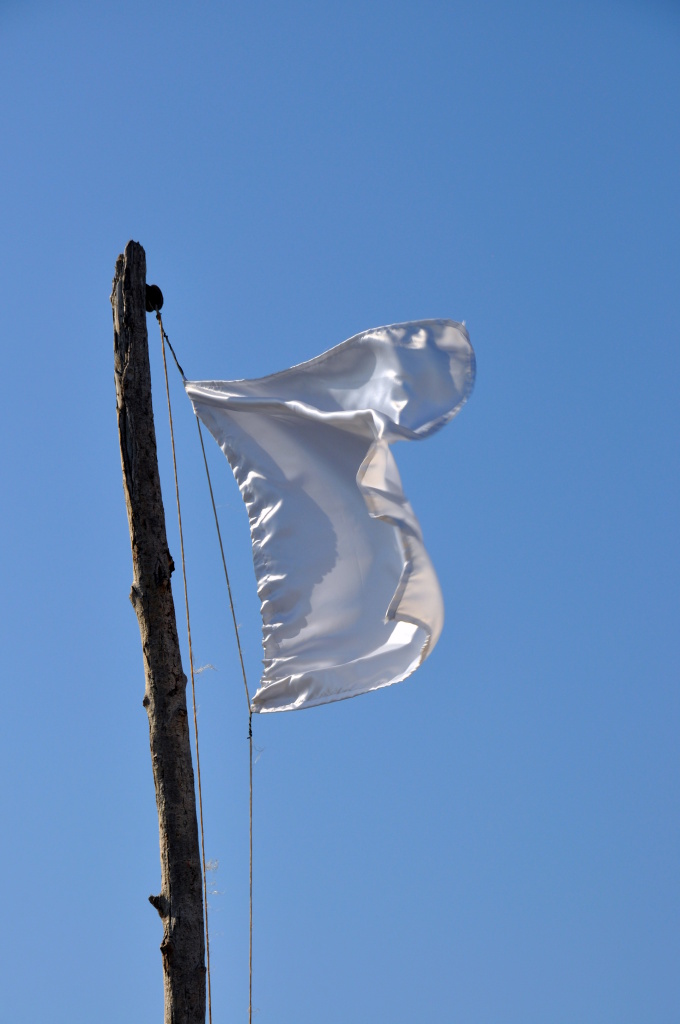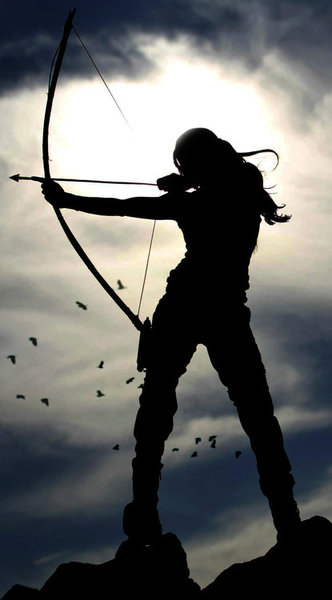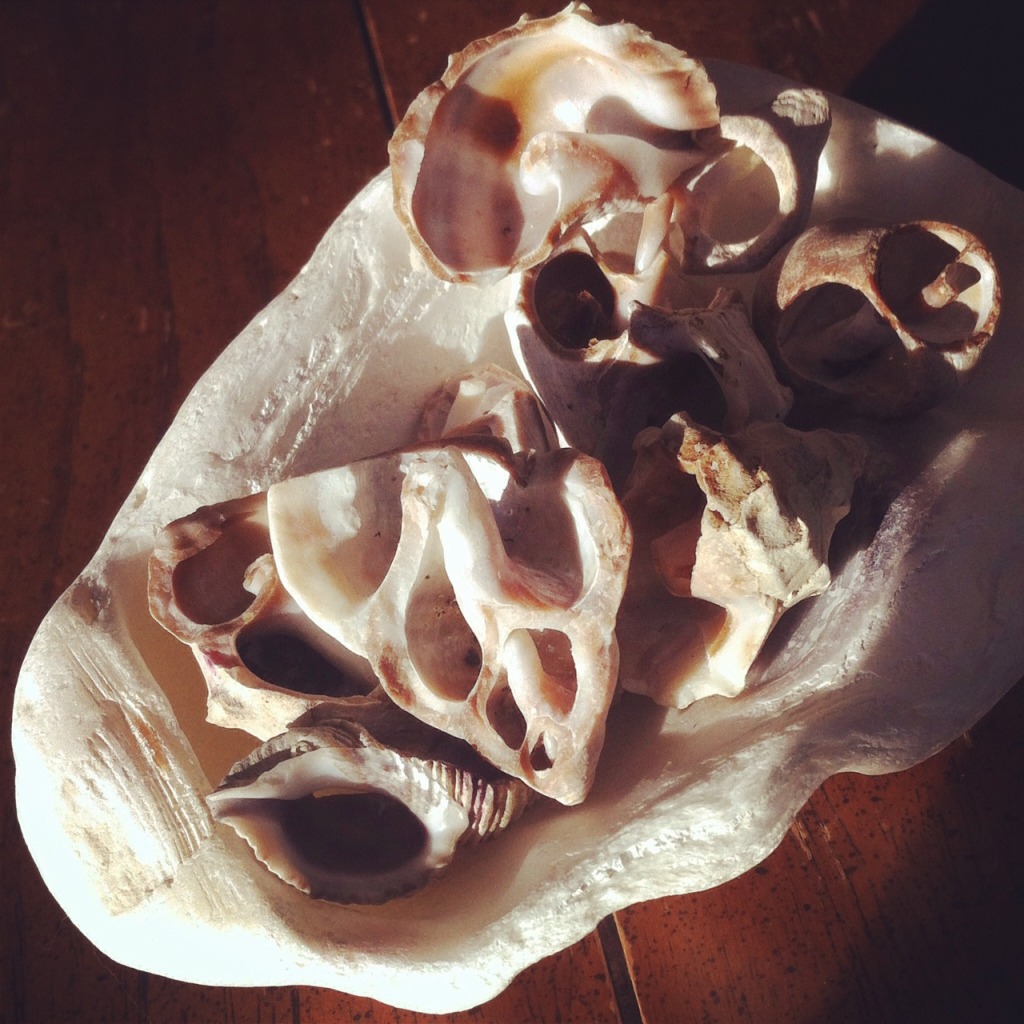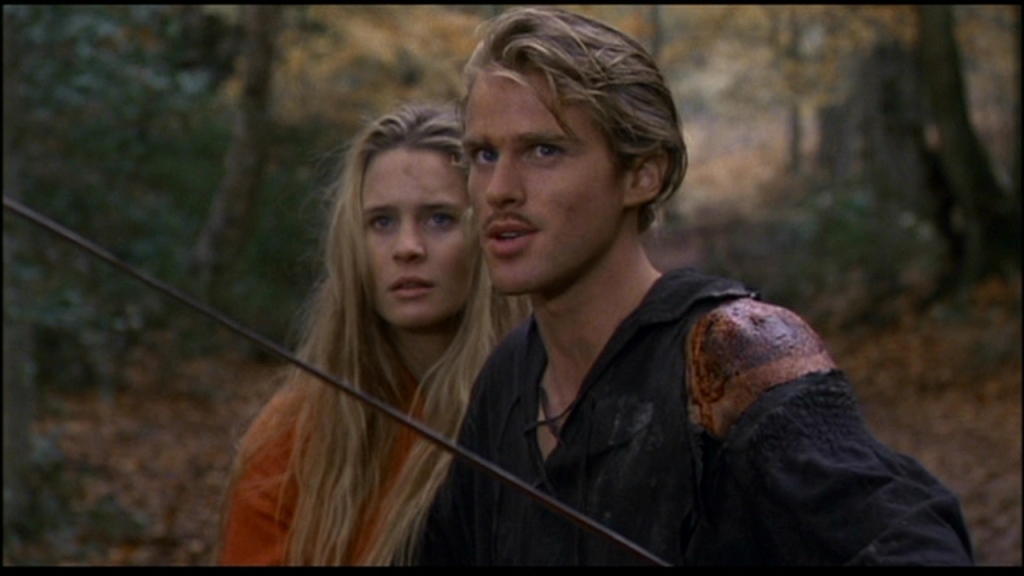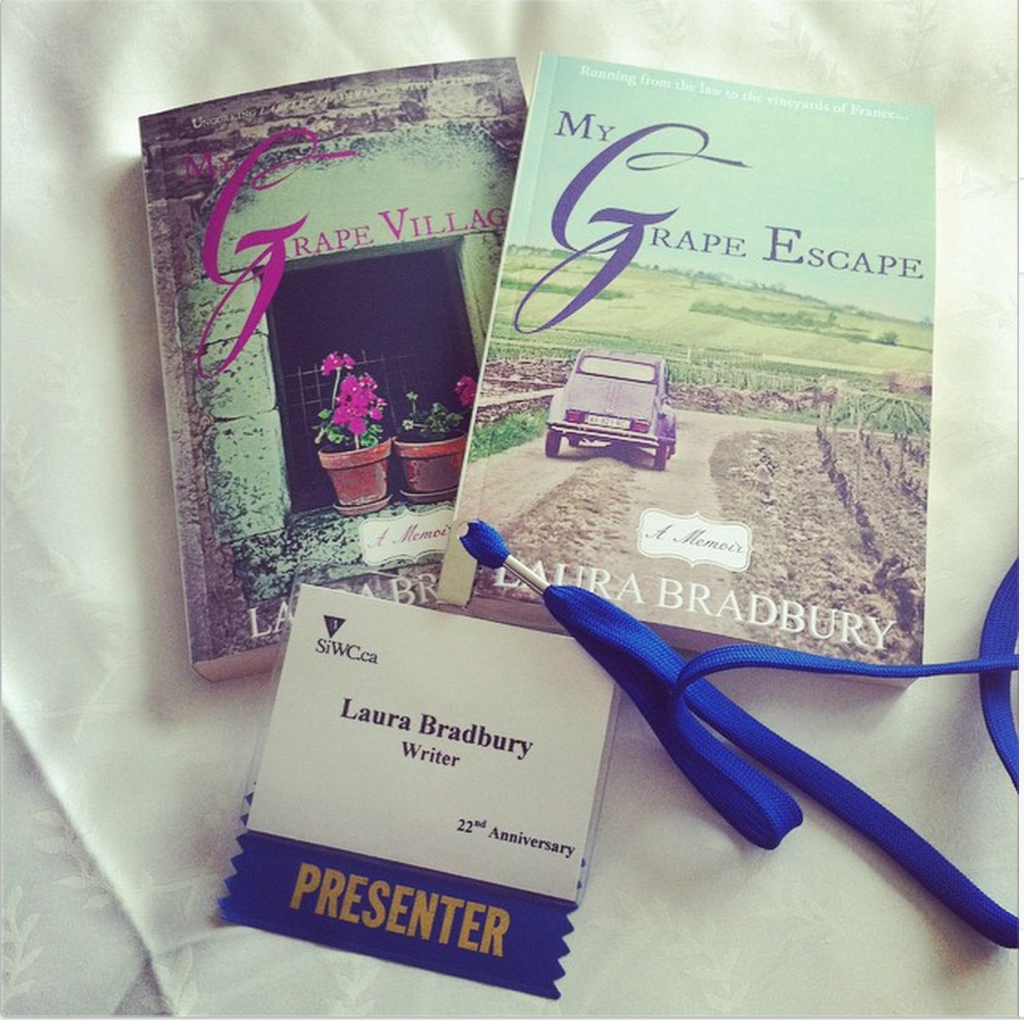
I found myself chuckling when I was editing this scene, which is always a Nice Thing. This excerpt begins halfway through the scene (it is a pivotal one, and I need to keep the first part a surprise until My Grape Year is published).
Laura (moi) is late for her speech at an Ursus meeting in Beaune but my once pristine white speech outfit is now covered in mud thanks to an impromptu standard driving lesson from Franck which resulted in getting his father's car stuck in the mud. Let me know what you think!
***
I realized that even though I had no idea how we were ever going to get the car unstuck, let alone get me to Beaune in time, there was nowhere I would rather be than where I was at that moment. I wasn’t supposed to drive and I wasn’t supposed to date and I certainly wasn’t supposed to fall in love but as I looked into the caramel and green flecks of Franck’s eyes, I knew that it was too late.
“Je t’aime aussi,” I said. We couldn’t close the distance between us fast enough.
Some time later a rattling cough interrupted us. I spun around to see a wizened man standing at the mouth of the woods in moth-eaten woolen overalls and a threadbare sweater, leaning on a twisted walking cane. He looked as though he belonged in a fairy tale.
“Bonjour,” Franck said. “Perhaps you could help us.”
The man’s eyes roved over the scene in front of him, missing nothing. “I have my doubts,” he concluded.
Franck ignored this. “I’m not exactly sure where we are. Could you tell me the the nearest village?”
The man jerked a thumb over his left shoulder. “Villers-Fontaine is over there. Two kilometers.”
“Our car is stuck.” Franck slapped his hand on the roof. “I was teaching my girlfriend how to drive a standard-“
“That wasn’t what you were doing.”
“Well…that’s what we were doing before we got stuck,” Franck clarified.
The man raised a bushy eyebrow.
“I don’t think we’ll be able to get the car out,” Franck said. “I’ve tried everything I can think of.”
The man wandered casually over to the front of the car and studied the front wheels. “You should never let women drive,” he said, at last. “Dangerous.”
I bristled. “I can drive just fine. I’m just not used to driving a standard.”
The man looked at me again, again cocking a skeptical brow.
Franck placed a placating hand at the small of my back while I crossed my arms over my chest and made a sound of displeasure. “We’ll just have to walk to the village and see if we can get a drive,” I said to Franck. “Or at least use a phone. We have to hurry though-”
“It’s a small village,” the man said. “Not certain you would find somebody home.”
“We’ve tried everything,” Franck gestured helplessly at the mud-mired tires.
The man tugged at the neck of his sweater. “What about stones?”
“Stones?” Franck said. “I hadn’t thought of that, but wouldn’t they puncture the wheels?”
“Not if they’re flat and positioned correctly,” the man said, poking at the front tire with his cane.
Franck and I both scanned the woods around us. The only stones I could see were the two enormous boulders placed to mark where the road entered the wood. I was quite certain that several men couldn’t lift them.
“I don’t see any stones,” Franck spoke for both of us.
“Ah!” The man shook his finger at us. “That’s because you young people do not know where to look.”
The silence stretched on for a weirdly long time, and the elfin French man seemed to be relishing every second of it.
“Alors?” Franck finally prompted.
“Come.” The man plunged into the woods, using his cane to whack away errant branches obstructing his path. “Suivez –moi.”
Franck followed him and seeing as I was still holding his hand, I did too.
“What if he’s crazy and he’s taking us in the forest to kill us?” I hissed after the trees became denser and began to obscure the afternoon light.
Franck paused, looked pointedly at the crooked figure disappearing in front of us, then back at me. “Laura. Please.”
He had a point. “Sorry. No insult intended.”
“None taken.” The twitch of his mouth confirmed this.
We followed the man deeper and deeper into the woods until the bright spring day disappeared entirely underneath a tunnel of bushes and trees.
“I always seem to get into strange situations like this with you,” I observed.
“I attract them. Ask any of my friends.”
The man finally stopped and beckoned us over to where he was standing.
“Voici!” he declared. “I bet you never would have found this by yourselves. He pulled aside a chunk of bushes with his cane to reveal a mossy wall that seemed to continue on the other side of the bush.
“Why is there a wall here in the middle of the forest?” I asked what I believed was the obvious question.
The man fixed me with brown eyes that looked black in the dim light and shrugged. “Gallo-Roman of course. Been here long before these trees were planted.” He nodded to a cluster of trunks nearby.
Franck inspected the smooth, flat stones wedged between the layers of bright green moss of the wall. “These might work.”
The man nodded. “Take a few each and carry them back to the car. You’ll see. They’ll work.”
I stared at the wall and then back to the man who was waiting, tapping an impatient forefinger on the gnarled top of his cane.
“But if the wall is really Gallo-Roman-,” I began.
“Do you think I’m lying?” the man demanded.
“No. I’m just not used to stumbling on Gallo-Roman walls in the woods where I live."
“Where do you live?” the man asked, indignant at the sacrilegious idea of woods which did not contain Gallo-Roman walls.
I glanced at my watch, which confirmed my suspicion that we didn’t have time to get into the whole Canada conversation if we had any hope of getting me to Beaune, muddy or not.
I waved my hand towards the sky above the treetops. “Not near here.” The man narrowed his eyes at me, clearly regretting his offer to help a non-Burgundian.
“What are you waiting for?” the man asked. “I don’t have all day.”
“We can’t dismantle a Gallo-Roman wall!” I burst out. To even think of taking apart a wall that had been built in the third century was a travesty.
Our wizened leader snorted. “It’s hardly like this is the only one in these woods. They’re everywhere.” He waved his cane around. “Besides, the Romans probably made this wall out of stones they stole from a Neolithic wall. Terrible thieves, those Romans.”
Roman thievery notwithstanding, I would not remove a stone from the wall, nor would I allow Franck to do it, Ursus speech be damned. This wall would be in a museum back in Canada. I would take no part in destroying such a piece of history.
Luckily, Franck solved the impasse by crouching down and finding several flat, smooth stones that had fallen off the wall and landed on the ground. “I think these will do the trick,” he said. “Are you OK with taking these Laura?”
“I guess,” I said. They were just on the ground, after all.
“No difference,” the old man grumbled, but ultimately approved Franck’s selections of stones.
We headed back to the car, each with several stones in our arms. When we got there our unlikely helper brusquely instructed us in their correct placement under the car wheels and gestured at me to stand far away from the car while he signaled to Franck when to rev it up. I rather thought this was less from fear that I would get even dirtier, and more from the suspicion that the proximity of a woman would throw a pox on the whole delicate operation.
Franck revved the car up and within seconds it came flying up on the rocks and out of its mud trap.
Franck drove it several meters further until it was well out of the muddy forest. The man gave a grunt of satisfaction.
“Thank you for showing us the rocks,” I said, eating a large slice of humble pie.
“You young people aren’t very clever,” he noted. “It makes me worry about the future.”
I tried to ignore this bit of rudeness. “Well, I think we learned something today.”
He harrumphed again. “Tant mieux.” He lifted his cane in a perfunctory good-bye and limped into the woods once again.
Franck was walking back into the forest to meet me.
“I thanked him,” I said when he’d reached me. “He said that our generation isn’t very clever and that it worries him.”
Franck took my arm and shouted merci and au-revoir to the man’s receding back. He didn’t even bother to turn around.
“Maybe he’s deaf,” I said.
“More likely he’s just run out of patience with us imbeciles.”
“I think you’re probably right…are we that stupid?”
Franck leaned down and kissed me. “Maybe love makes us stupid,” he said. “If that’s the case I’m quite at peace with being an idiot. Now come on, we have a speech to get you too.”




